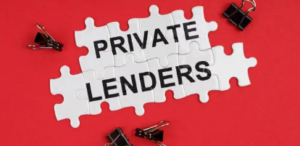The good news is that bad credit doesn’t have to keep you from owning a home. Many mortgage lenders offer bad credit home loans designed specifically for borrowers with
 lower scores.
lower scores.
The minimum credit score required for a mortgage varies by lender and loan type. But it’s important to keep your credit score as high as possible.
Buying a home with bad credit
When you have bad credit, it can feel like buying a home is impossible. Mortgages are large debt that takes decades to pay off, so lenders are cautious about lending to borrowers with poor credit history. However, it is possible to buy a home with bad credit if you are willing to make a higher down payment and pay a higher interest rate.
Conventional mortgage lenders only require a minimum credit score of 620, but some lenders will lend to borrowers with scores below this level. These lenders typically charge higher rates to offset the risk of lending to borrowers with lower credit scores. However, there are also government-backed loan programs that have more lenient requirements for borrowers with low credit scores.
If you have a low credit score, it may be worthwhile to work on improving your score prior to applying for a mortgage. It will give you more mortgage options and save you thousands of dollars in interest payments over the life of your loan. In addition, it is possible to purchase a home now and refinance later to a better loan with a lower interest rate.
It is important to compare rates and terms from multiple lenders before deciding on a lender. It will help you find the best loan for your circumstances and goals.
FHA loans
Homebuyers with bad credit often discover that there are a number of mortgage programs designed to help them purchase homes. While a low credit score isn’t a deterrent to getting a loan, it is important to remember that mortgage lenders will weigh your credit history against other factors such as income and employment. You can find more information about these mortgage programs and their borrower requirements by consulting a loan officer.
A good way to improve your credit is to make regular payments on time on your bad credit home loans. It will lower your debt-to-income ratio and demonstrate that you are a responsible borrower. In addition, it will help you build up a solid payment history that is more valuable than the recent activity on your credit report.
Conventional loans
Conventional loans are mortgages from private lenders that conform to the guidelines set by government-backed mortgage companies Fannie Mae and Freddie Mac. These guidelines typically include a credit score requirement in the 620 range, but some lenders may extend loan approval for those with lower scores. These loans are often more expensive, as they require higher interest rates to compensate for the increased risk to the lender.
Some lenders might also allow borrowers to apply with a cosigner who has a better credit history. It will mitigate the impact of a low credit score and could enable the borrower to qualify for a mortgage they otherwise would not be eligible for. However, borrowers should be aware that they are both jointly liable for the debt and will have to meet all loan requirements.
It’s important to know your options and work with an experienced mortgage consultant who can significantly help you find the right home and financing for your needs. Although bad credit can make it more difficult to secure a mortgage, you shouldn’t let it stop you from buying your dream home.
There are many benefits to refinancing, including lowering your monthly payments and reducing the amount of debt you have. However, it’s important to weigh the costs against the savings. Also, be aware of the upfront closing costs, which can run between 2% and 5% of your loan amount. These costs can add up quickly and make your new loan more expensive.